
99.3% of enterprises have registered to use electronic tax payment services with tax authorities; 98.7% of enterprises have completed registration for electronic tax payment services with banks.
The number of electronic tax payment transactions in 2025 reached 3,308,715 transactions with an amount of over VND 666,969 billion. 97% of enterprises participated in electronic value-added tax refunds, and tax authorities processed electronic refunds for 9,166 records with a refund amount of VND 76,074 billion.
At the same time, the Tax Department received more than 173 thousand electronic declarations for property leasing activities, more than 1.4 million electronic registration fee declarations for cars and motorbikes (reaching 55% of the total number of declarations).
Regarding the implementation of the electronic tax application for mobile devices (eTax Mobile), since its implementation, there have been more than 6.2 million downloads, installations and uses of the application (an increase of 13% compared to June 2025); The number of transactions via commercial banks is nearly 10.3 million transactions with a total successful payment of 18.5 trillion VND.
The total number of electronic invoices received and processed by tax authorities from the time of implementation to July 19, 2025 is more than 15.8 billion invoices, including: more than 3.4 billion invoices with codes; 9.5 billion invoices without codes; more than 2.5 million invoices for each occurrence; nearly 2.9 billion invoices generated from cash registers.
The total number of invoices received and processed since the beginning of 2025 alone is more than 4 billion invoices, including: more than 600 million invoices with codes, more than 1.8 billion invoices without codes, 323.5 thousand invoices by occurrence and more than 1.5 billion invoices initiated from cash registers.
In addition, the Tax Department has issued a document to organizations providing electronic invoice services, requesting coordination and cooperation with the tax sector in supporting business households and individuals to deploy electronic invoices generated from cash registers. On July 22, 2025, the Tax Department held a meeting with MISA on solutions to support small, micro-enterprises, and business households on this content.
Regarding the modernization of the information technology system, the Tax Department has completed upgrading the electronic tax system to meet the need to log in with an electronic identification account on VNeID to carry out tax administrative procedures from July 1, 2025 and the Tax sector's application system supports checking data to match the national database on population, meeting the need to use personal identification numbers instead of tax codes from July 1, 2025.

Regarding connection and integration with the National Public Service Portal, the Tax Department has coordinated with the National Data Center ( Ministry of Public Security ) to pilot the implementation of 4 administrative procedures of the tax authority integrated with the National Public Service Portal. In particular, the Tax Department requested the Center to coordinate in completing the business process, management process, operation, reconciliation when implementing the integration of many systems and to establish a detailed plan and implementation roadmap for the Tax Department to coordinate the implementation to ensure the right progress.
Regarding the work of cutting and simplifying tax administrative procedures, in July 2025, the Tax Department submitted and received approval for a plan to cut and simplify tax administrative procedures.
In addition, the Tax Department is continuing to review and research to supplement proposals for reducing and simplifying administrative procedures.
Up to now, the entire tax sector has proposed to reduce and simplify 96 administrative procedures related to production and business activities (reaching 44%). Of which: 24 administrative procedures were abolished, 110 administrative procedures were merged into 38 administrative procedures (reducing 72 administrative procedures) for administrative procedures with similar forms and contents. The total number of administrative procedures proposed to be simplified is 63 administrative procedures (reducing dossier components, applying information technology, reusing data).
After cutting and simplifying tax administrative procedures, it is expected to reduce from 219 administrative procedures to 123 administrative procedures. Accordingly, the rate of reduction in time for handling administrative procedures will reach 40%; the rate of reduction in costs for compliance with administrative procedures will reach 45%.
In the program for the last months of the year, the tax sector continues to promote reform and radical, comprehensive digital transformation in tax management towards modernization, synchronous and effective investment. In which, it focuses on implementing major projects and key tasks such as: breakthroughs in science and technology development, innovation and national digital transformation; redesigning business processes towards simplicity and automation in line with long-term orientations on digital transformation; restructuring the tax sector's information technology system and digital transformation projects (application of virtual assistants to support taxpayers nationwide; automatic personal income tax refund; automation of debt management).
The Tax Department strives to continue promoting data sharing connections with ministries and sectors (population data, journey monitoring data, etc.) and collect information from data sources outside the sector (banking, securities, insurance, land management, etc.), tax management information to build and develop large databases on e-commerce, tax refunds, invoices, real estate transactions, etc.
In addition, the Tax Department focuses on effectively implementing the plan to promote the implementation of Directive 18/CT-TTg dated May 30, 2023 of the Prime Minister to serve the development of e-commerce, prevent tax losses, ensure monetary security, and assign specific responsibilities to each ministry (Finance, Industry and Trade, Information and Communications, Public Security, State Bank, Government Office...).
The unit also accelerates the application of AI in big data processing, deploys tax statistics projects to effectively exploit the industry's data sources, providing necessary information for direction and management. At the same time, the industry will more vigorously implement the application of electronic invoices generated from cash registers; closely inspect and supervise the issuance of electronic invoices for each sale for retail gasoline business (closely following the implementation of electronic invoices at gasoline stores to have timely instructions to ensure compliance with the targets assigned by the Government and the Ministry of Finance), trading, buying and selling of gold, silver, precious stones, food services, and retail.
At the same time, the Tax Department continues to review and reduce administrative procedures, improve the quality of online public services throughout the process, develop a detailed implementation plan to strive to reduce 30% of administrative procedures; by the end of 2025, 100% of tax administrative procedures that meet the conditions prescribed by law will be provided in the form of online public services throughout the process, 80% of tax administrative procedure records will be processed online.
Source: https://nhandan.vn/tiep-tuc-trien-khai-tot-cac-dich-vu-thue-dien-tu-post903159.html



![[Photo] Parade blocks pass through Hang Khay-Trang Tien during the preliminary rehearsal](https://vphoto.vietnam.vn/thumb/1200x675/vietnam/resource/IMAGE/2025/8/27/456962fff72d40269327ac1d01426969)



![[Photo] Images of the State-level preliminary rehearsal of the military parade at Ba Dinh Square](https://vphoto.vietnam.vn/thumb/1200x675/vietnam/resource/IMAGE/2025/8/27/807e4479c81f408ca16b916ba381b667)













![[Photo] Images of the State-level preliminary rehearsal of the military parade at Ba Dinh Square](https://vphoto.vietnam.vn/thumb/402x226/vietnam/resource/IMAGE/2025/8/27/807e4479c81f408ca16b916ba381b667)
![[Photo] Parade blocks pass through Hang Khay-Trang Tien during the preliminary rehearsal](https://vphoto.vietnam.vn/thumb/402x226/vietnam/resource/IMAGE/2025/8/27/456962fff72d40269327ac1d01426969)






































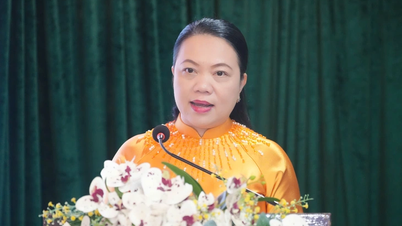
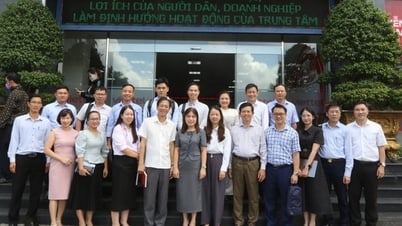



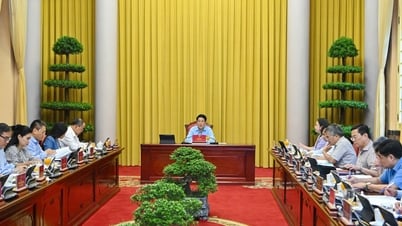

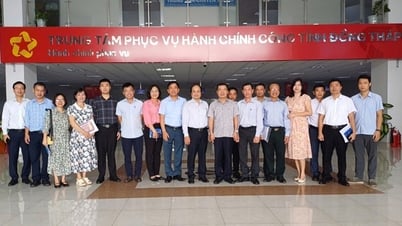
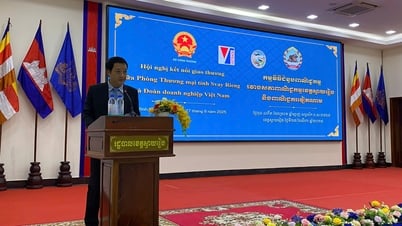





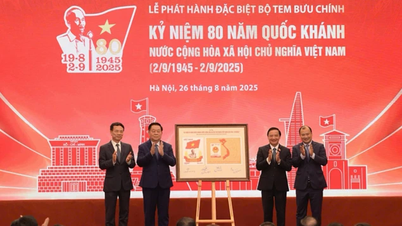




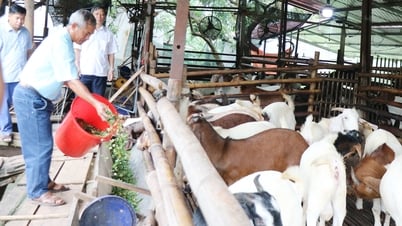
















Comment (0)